The CMP Review — Week of October 27
October 27, 2025
While most of our homeschool subjects rotate on a schedule throughout the week, there are a few we do every day. Bible, the three Rs, our devotional reading of The Golden Key, and Current Events are amongst those we know we will be doing no matter if it’s also a Picture Study, Sloyd, or Plutarch day.
For Current Events, we watch a 10-minute episode of World Watch News. We do this during lunch and it allows for a natural discussion of different topics going on in the world. There are content consideration warnings which are helpful in alerting me when there may be sensitive subjects I want to review before my younger children watch.
I appreciate that they present news in a way that lines up with our family values, reminding us at the end of each episode “no matter the news, the purpose of the Lord will stand.”
If you’re looking for an easy yet meaningful way to include current events in your homeschool, may I recommend World Watch? Here’s a referral link with a 30-day free trial.
@tessakeath
October 28, 2025
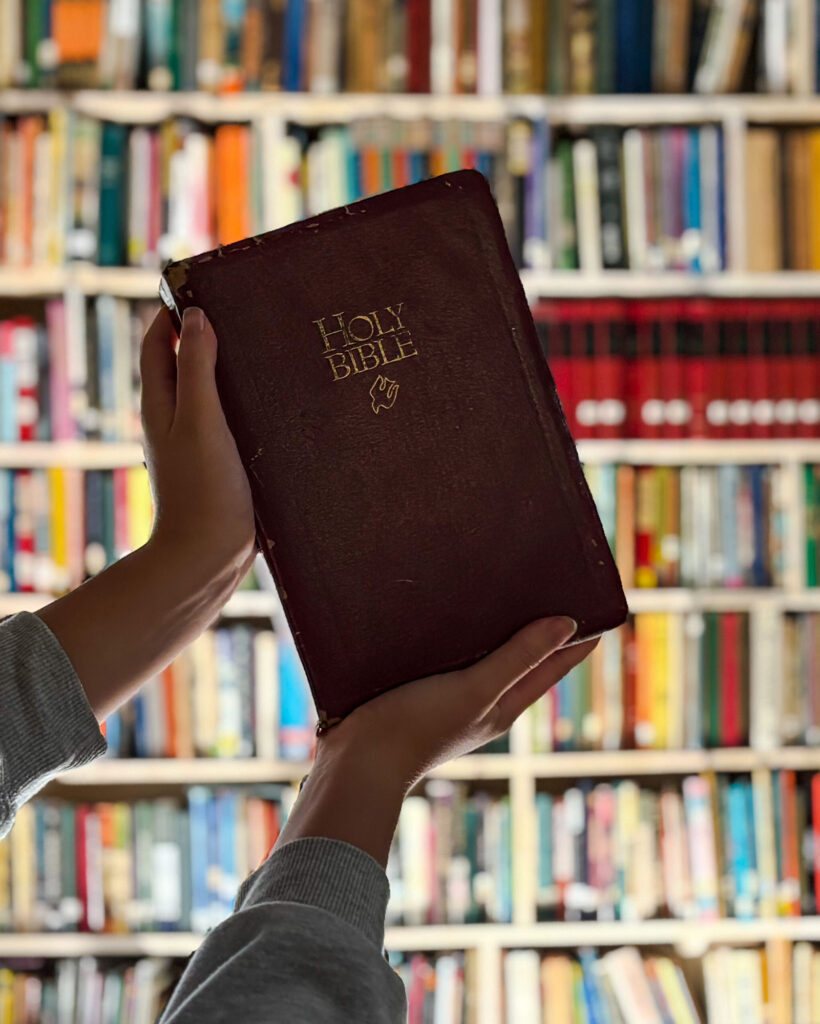
The Charlotte Mason method prescribes that formal Bible lessons normally begin when the child is six years old. What is the nature of these first Bible lessons? And what experiences with the Bible might children have who are younger than six years of age?
Essex Cholmondeley is well-known as Charlotte Mason’s first biographer. In 1923 she had only recently graduated from the House of Education and was soon to begin a lifetime of work with the PNEU. It was in that year that she spoke on the topic of first Bible lessons.
“Some houses contain a library, a room whose walls are lined with the inviting backs of books,” she began. But “There is another kind of Library which every household possesses or may possess.” That Library is … the Bible.
Read or hear Cholmondeley’s inspiring article here.
@artmiddlekauff
October 29, 2025
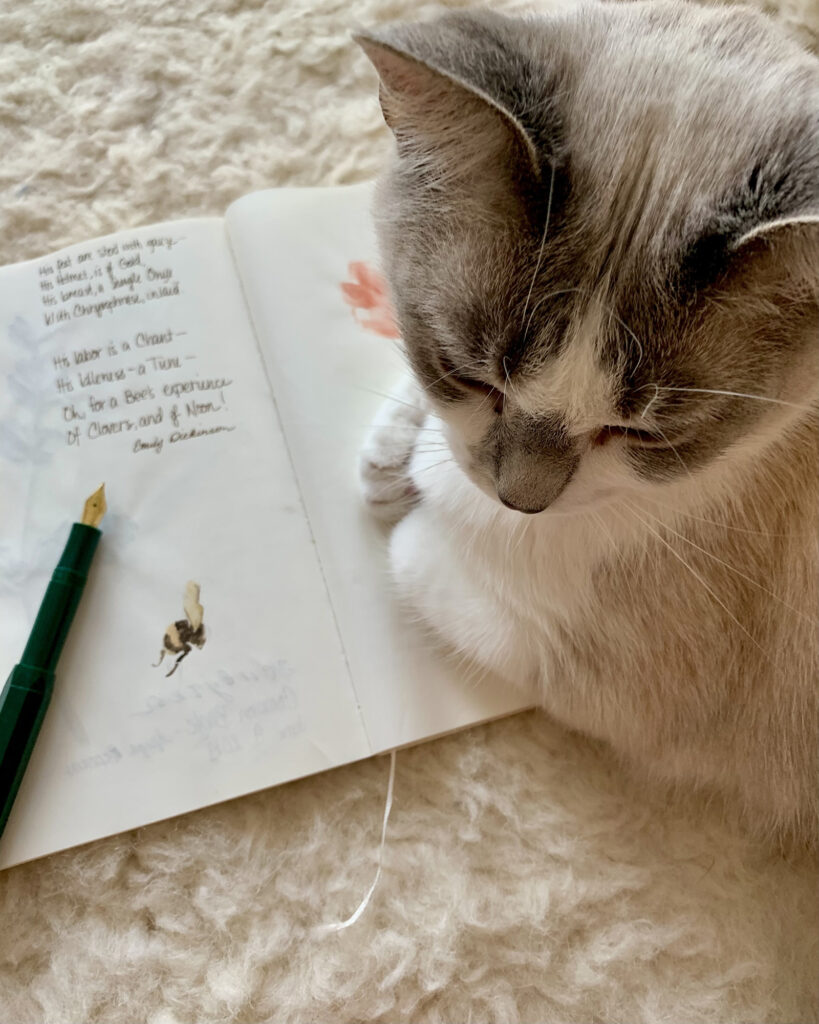
Nature Journal Confession
This European Bumblebee might be the craziest thing I’ve ever painted in my nature journal.
When posting a spread with the peony there was a dead bumblebee laying on the page. So many people remarked on my “bumblebee painting” that I watercolored it in the exact position.
And that’s how I began adding insects to my nature journal.
Do you have any weird nature journaling stories?
@rbaburina
October 30, 2025
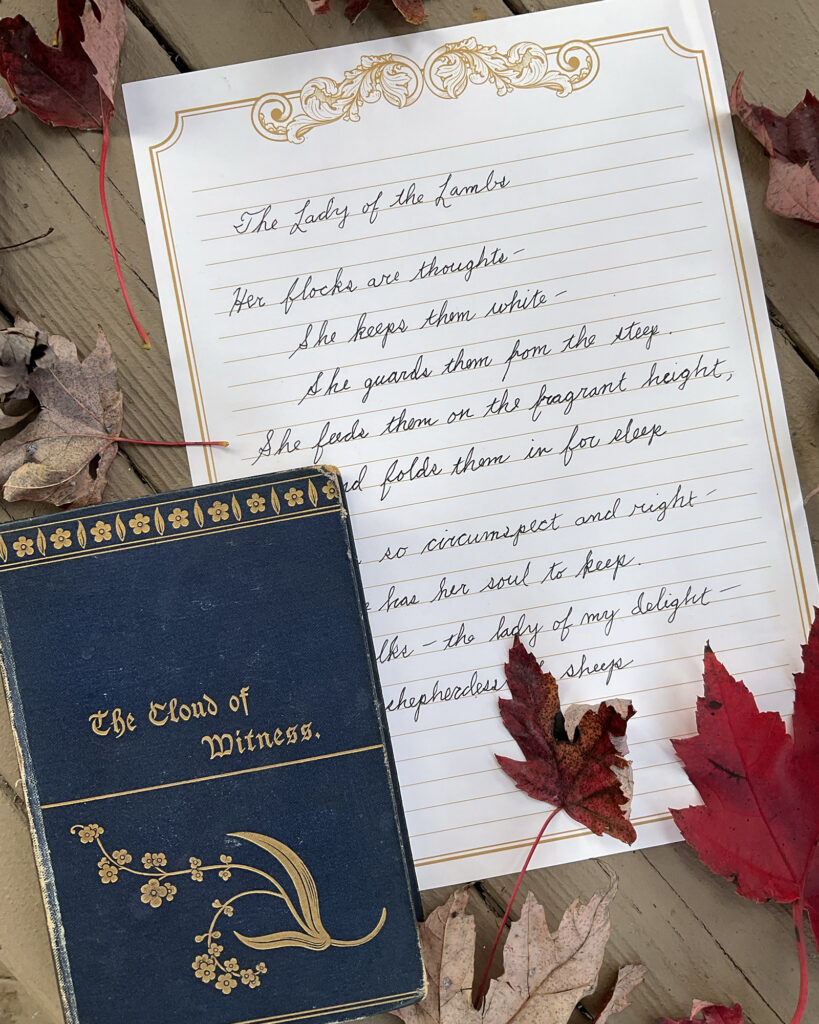
In Edith Gell’s The Cloud of Witness this week we read about “Consecration of Mind.” Monday’s selection includes lines from an 1867 poem by Jean Ingelow:
When our thoughts are born,
Though they be good and humble, one should mind
How they are reared, or some will go astray
And shame their mother.
The idea of personifying our thoughts brought to mind another poem, “The Shepherdess” by Alice Meynell, first published in 1896. In this piece the poet praises a shepherdess whose “flocks are thoughts” and “she guards them from the steep”:
She holds her little thoughts in sight,
Though gay they run and leap.
She is so circumspect and right;
She has her soul to keep.
This poem, also known as “The Lady of the Lambs,” was set to music. It is a small, classical piece, set for soprano and wind quintet. One might think that classical music is from a bygone era and that the song, like the poem, is from the 19th century.
Alas, it is not. The exquisitely beautiful “The Lady of the Lambs” was composed in 1992. It is an inspiring companion to this week’s The Cloud of Witness. I recommend the recording by soprano Mary Bevan which you can find on music streaming services everywhere, and at this link.
@artmiddlekauff
October 31, 2025
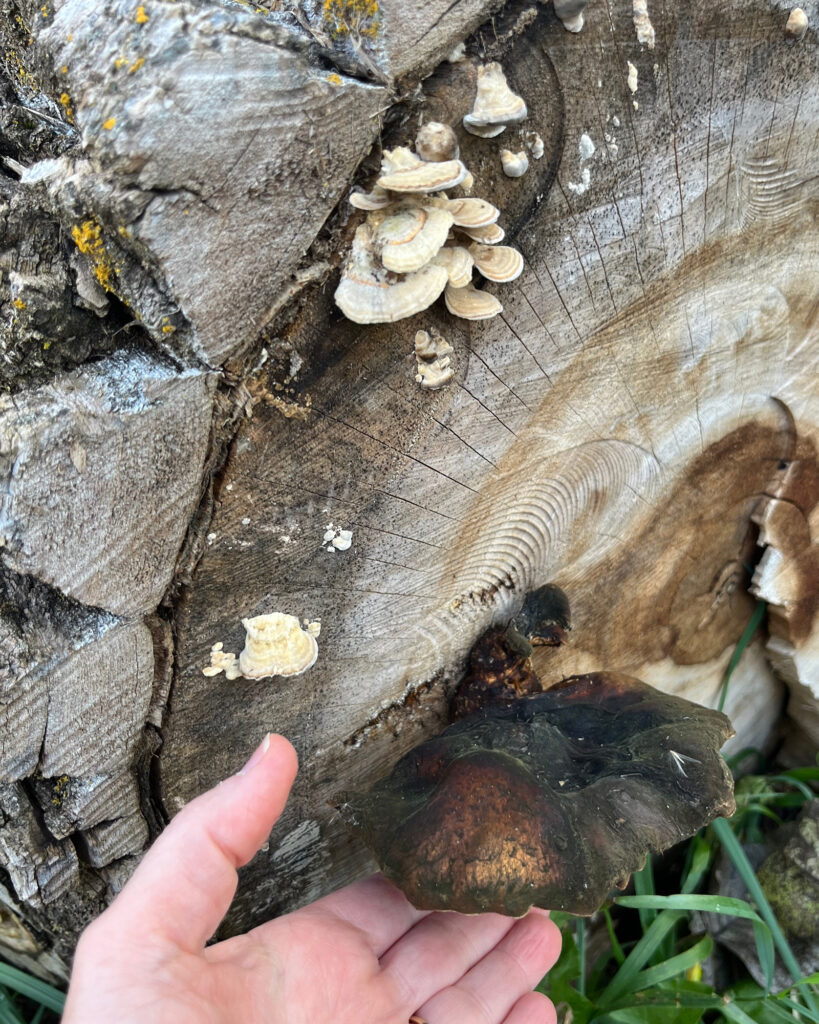
With all the rain we have been having over the few months, so many interesting things pop up for us to observe!
Next on our list will be to go hunting for moss. That’s another part of nature that just “pops” with the rain and moisture.
What “specific to the season” things are you seeing on your nature walks these days?
@antonella.f.greco
November 1, 2025
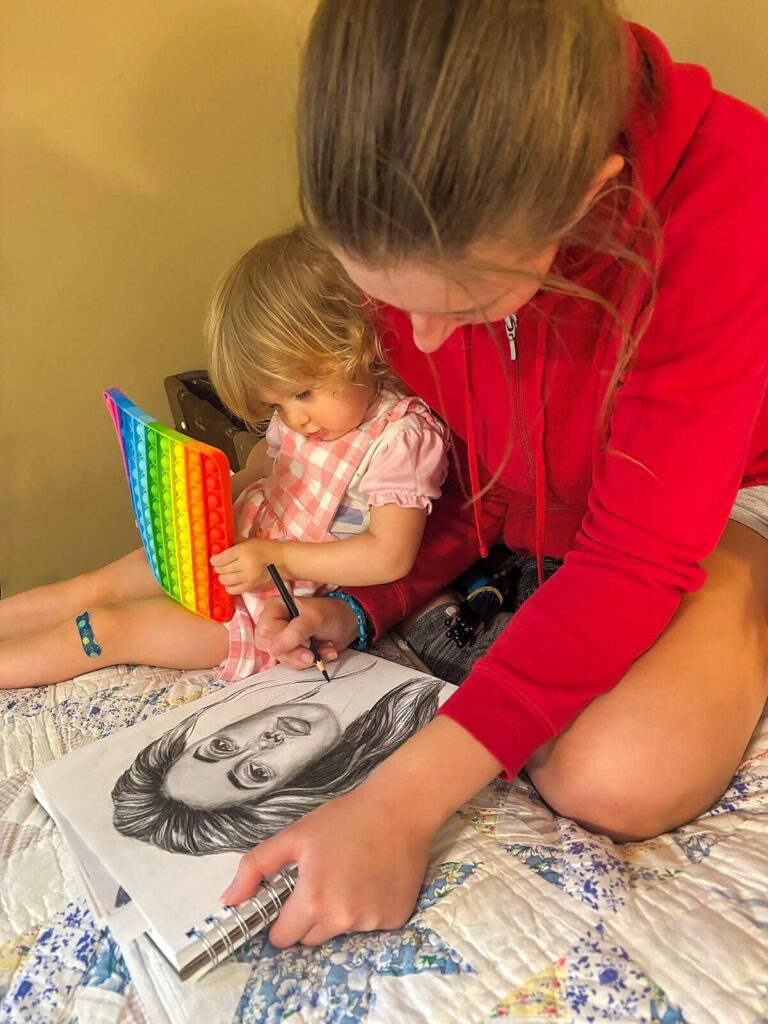
“To all parents I would say therefore: Encourage your children to take an interest in art, to develop aesthetic ideas and ideals—give them every opportunity to advance in art work of any kind. Foster a liking for drawing whenever it is shown by a child—such a liking may have very far-reaching results, for ‘from small beginnings great endings do spring,’ and the early art efforts of the child should not be curbed but encouraged, if not as a means of future livelihood … then, if I may use the word in this connection, as an alchemy in the forming of the ultimate character of the individual.” (PR38, “The Importance of Art Training”)
@tessakeath
November 2, 2025
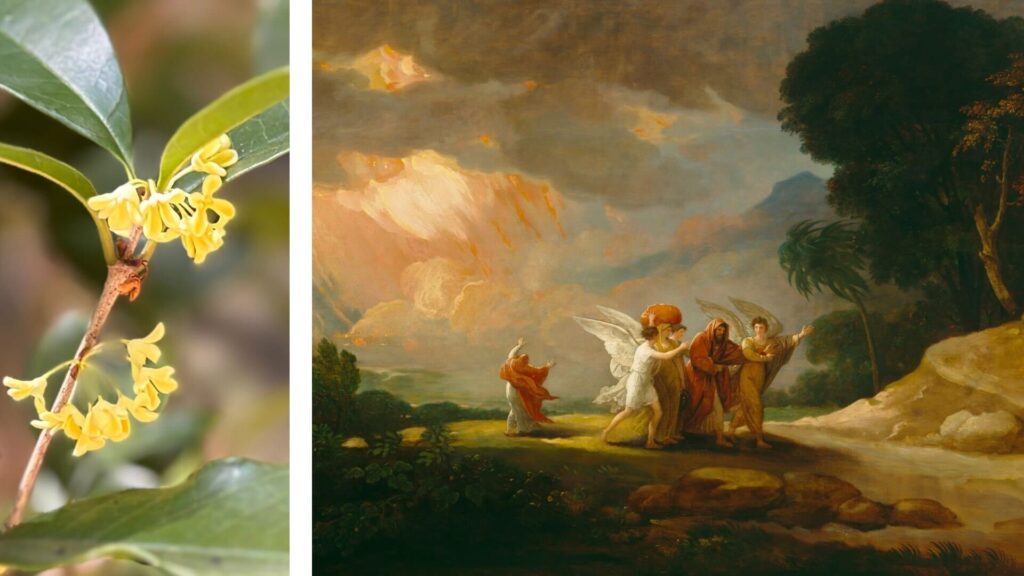
In a dramatic passage in Book II of Ourselves, Charlotte Mason writes:
Therefore, Christ ate with publicans and sinners, and pronounced woes against the respectable classes; because the sinners might still have a Will which might rise, however weakly, at the impact of a great thought, at the call to a life outside of themselves. The men at whom no one could point a finger were tied and bound in self, and were incapable of the great act of will implied in, “Choose ye this day whom ye will serve.”
There are but two services open to men—that which has self as the end and centre, and that which has God (and, by consequence, man) for its object.
In her poem on the Second Coming of Christ, Mason portrays our Lord as the judge of these two kinds of men:
A gulf is fixed ’twixt those and these,—
The men who seek their life,—their ease,
Their comfort, wealth, high place,—“for all
Things which concern the Spirit’s call,
All these shall lose the life they seek;
But there be men of spirit meek
Who give their lives, an offering free.
Find how ideas in Mason’s Ourselves are illuminated by awesome words in the Gospel of Christ. Read or hear the poem here.
@artmiddlekauff